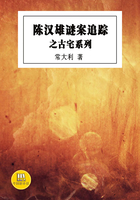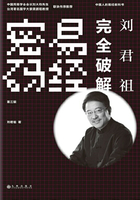Sec. 138. Thirdly, The supreme power cannot take from any man any part of his property without his own consent: for the preservation of property being the end of government, and that for which men enter into society, it necessarily supposes and requires, that the people should have property, without which they must be supposed to lose that, by entering into society, which was the end for which they entered into it; too gross an absurdity for any man to own. Men therefore in society having property, they have such a right to the goods, which by the law of the community are their's, that no body hath a right to take their substance or any part of it from them, without their own consent: without this they have no property at all; for I have truly no property in that, which another can by right take from me, when he pleases, against my consent. Hence it is a mistake to think, that the supreme or legislative power of any common-wealth, can do what it will, and dispose of the estates of the subject arbitrarily, or take any part of them at pleasure. This is not much to be feared in governments where the legislative consists, wholly or in part, in assemblies which are variable, whose members, upon the dissolution of the assembly, are subjects under the common laws of their country, equally with the rest.
But in governments, where the legislative is in one lasting assembly always in being, or in one man, as in absolute monarchies, there is danger still, that they will think themselves to have a distinct interest from the rest of the community; and so will be apt to increase their own riches and power, by taking what they think fit from the people: for a man's property is not at all secure, tho' there be good and equitable laws to set the bounds of it between him and his fellow subjects, if he who commands those subjects have power to take from any private man, what part he pleases of his property, and use and dispose of it as he thinks good.
Sec. 139. But government, into whatsoever hands it is put, being, as I have before shewed, intrusted with this condition, and for this end, that men might have and secure their properties; the prince, or senate, however it may have power to make laws, for the regulating of property between the subjects one amongst another, yet can never have a power to take to themselves the whole, or any part of the subjects property, without their own consent: for this would be in effect to leave them no property at all. And to let us see, that even absolute power, where it is necessary, is not arbitrary by being absolute, but is still limited by that reason, and confined to those ends, which required it in some cases to be absolute, we need look no farther than the common practice of martial discipline: for the preservation of the army, and in it of the whole common-wealth, requires an absolute obedience to the command of every superior officer, and it is justly death to disobey or dispute the most dangerous or unreasonable of them; but yet we see, that neither the serjeant, that could command a soldier to march up to the mouth of a cannon, or stand in a breach, where he is almost sure to perish, can command that soldier to give him one penny of his money; nor the general, that can condemn him to death for deserting his post, or for not obeying the most desperate orders, can yet, with all his absolute power of life and death, dispose of one farthing of that soldier's estate, or seize one jot of his goods; whom yet he can command any thing, and hang for the least disobedience; because such a blind obedience is necessary to that end, for which the commander has his power, viz. the preservation of the rest; but the disposing of his goods has nothing to do with it.
Sec. 140. It is true, governments cannot be supported without great charge, and it is fit every one who enjoys his share of the protection, should pay out of his estate his proportion for the maintenance of it. But still it must be with his own consent, i.e. the consent of the majority, giving it either by themselves, or their representatives chosen by them:
for if any one shall claim a power to lay and levy taxes on the people, by his own authority, and without such consent of the people, he thereby invades the fundamental law of property, and subverts the end of government: for what property have I in that, which another may by right take, when he pleases, to himself?
Sec. 141. Fourthly, The legislative cannot transfer the power of making laws to any other hands: for it being but a delegated power from the people, they who have it cannot pass it over to others. The people alone can appoint the form of the common-wealth, which is by constituting the legislative, and appointing in whose hands that shall be. And when the people have said, We will submit to rules, and be governed by laws made by such men, and in such forms, no body else can say other men shall make laws for them; nor can the people be bound by any laws, but such as are enacted by those whom they have chosen, and authorized to make laws for them. The power of the legislative, being derived from the people by a positive voluntary grant and institution, can be no other than what that positive grant conveyed, which being only to make laws, and not to make legislators, the legislative can have no power to transfer their authority of making laws, and place it in other hands.
Sec. 142. These are the bounds which the trust, that is put in them by the society, and the law of God and nature, have set to the legislative power of every common-wealth, in all forms of government.
First, They are to govern by promulgated established laws, not to be varied in particular cases, but to have one rule for rich and poor, for the favourite at court, and the country man at plough.
Secondly, These laws also ought to be designed for no other end ultimately, but the good of the people.
Thirdly, They must not raise taxes on the property of the people, without the consent of the people, given by themselves, or their deputies. And this properly concerns only such governments where the legislative is always in being, or at least where the people have not reserved any part of the legislative to deputies, to be from time to time chosen by themselves.
Fourthly, The legislative neither must nor can transfer the power of making laws to any body else, or place it any where, but where the people have.















